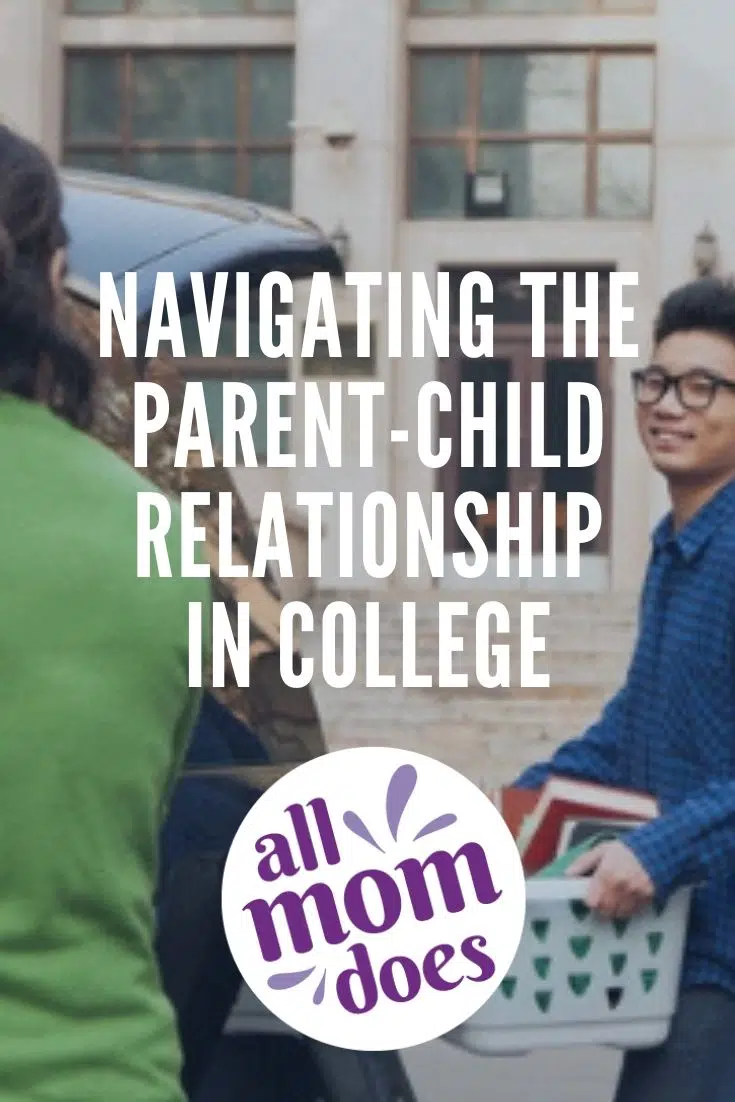Today’s technology-rich culture makes it easier than ever to stay in constant contact with your child – but that’s not always for the best. Though it can certainly ease the transition to college for many students (and their anxious parents!), it can also hinder the development of autonomy and personal growth.
To ensure your child is ready to launch into adulthood after graduation, it’s necessary to be intentional about your involvement – and uninvolvement – during their college years. Here are some guidelines.
This post is sponsored by Northwest University.
Don’t respond immediately to every call or text. College is a time for your child to become independent, and they can’t do that if they’re constantly relying on you. People develop some of the strongest social connections of their lives during their college years, but your child may not make the effort to develop them if you’re always available by phone, text, or video chat to fulfill their social needs. Do communicate regularly with your child, but don’t be immediately available for every little inquiry.
Don’t make them feel guilty for not responding to yours. Just as you shouldn’t respond quickly to every text from your child, you should take it as a sign of success when they don’t respond to yours. During this season of life they should enjoy freedom and spontaneity, and shouldn’t feel responsible for meeting your emotional needs. When you do connect, let them know you enjoy catching up and hearing about their life at college – but don’t make them feel guilty for any time they were out of touch.
Affirm their ability to make good decisions. Building confident decision-making skills is like strengthening a muscle – it needs to be used in order to develop. Your child will never develop confidence in their own abilities if you’re always doing the heavy lifting, and that heavy lifting includes talking it through with them, even if they’re the one who makes the final decision. If your child is wrestling with a decision, encourage them but don’t always help them. Say something like, “I know this is hard for you and I really want to help, but you’re an adult and I believe in your ability to make a good decision in this circumstance. I’m here to support you, but this needs to be your call.”
Do not intervene with their friends, professors, employers, or anyone else. We get it. Self-advocacy is hard, it’s uncomfortable, and failing to do it can have negative consequences for your kid. But college is an environment with learning opportunities far beyond the academic, and if they don’t learn these skills now they will struggle to do so in adulthood. Coach your child on how to advocate for themselves in tough situations, but never do it for them. If they fail to do it, allow them to suffer the consequences of their actions.
Get comfortable with less information. All educational institutions must abide by the Family Educational Rights and Privacy Act (FERPA), but once your child is in college the privacy rights transfer to them. What this means is that your child’s school can not give you information about their grades, their schedule, or their attendance. Parents who are financially backing their child’s education often feel this is unfair, but the law is clear – no information can be given. If you have a question, ask your student.
Accept institutional boundaries. Respect any other boundaries your institution places on parents. Trust that the school has a wealth of experience with newly-independent 18-year-olds and their parents, and probably knows what’s best for them over the long haul. Boundaries aren’t put in place to punish anyone, but to create the optimal environment for everyone (both students and parents) to grow during this new phase of life. Plus, when you rail for more involvement you’re sending a message to your child that you don’t think they can be successful on their own. They will internalize this message and it will negatively affect their personal belief in their own ability.
Encourage them to use their resources. Today, all colleges have comprehensive support services for students. Outsource some of your “parenting” to campus resources like mental health counseling, career counseling, academic advising, or activities/social clubs. This takes the pressure off you while building their support system and showing them how to get the help they need on their own.
College is a time of huge transition for both parents and students, and it’s never easy to watch your child struggle if the transition is hard. But if you reflect back on your own journey to adulthood, you probably experienced the most growth during challenging times. Keep the lines of communication open, but resist the temptation to be over-involved in your new college student’s life. Allow them the opportunity to build independence and other life skills that will prepare them for a successful adulthood, and then marvel with pride over the responsible adult they are becoming!

 Northwest University understands the trust parents place in us to care for their son or daughter during their formative young adult years. We are committed to giving our very best to your student, and respect the role you will continue to play in your child’s life. Northwest University offers a parent resource page to help you navigate this transitional time and make sure you feel connected to your student and the college while they are away from home.
Northwest University understands the trust parents place in us to care for their son or daughter during their formative young adult years. We are committed to giving our very best to your student, and respect the role you will continue to play in your child’s life. Northwest University offers a parent resource page to help you navigate this transitional time and make sure you feel connected to your student and the college while they are away from home.
Northwest University is a top-ranked Christian university with over 70 academic programs that is committed to your child’s success. Providing academic support, spiritual growth opportunities, and robust community, we have everything to help your child thrive as they grow academically, spiritually, and personally. Learn about the comprehensive supports Northwest University offers its students and schedule a visit today!

























Comments